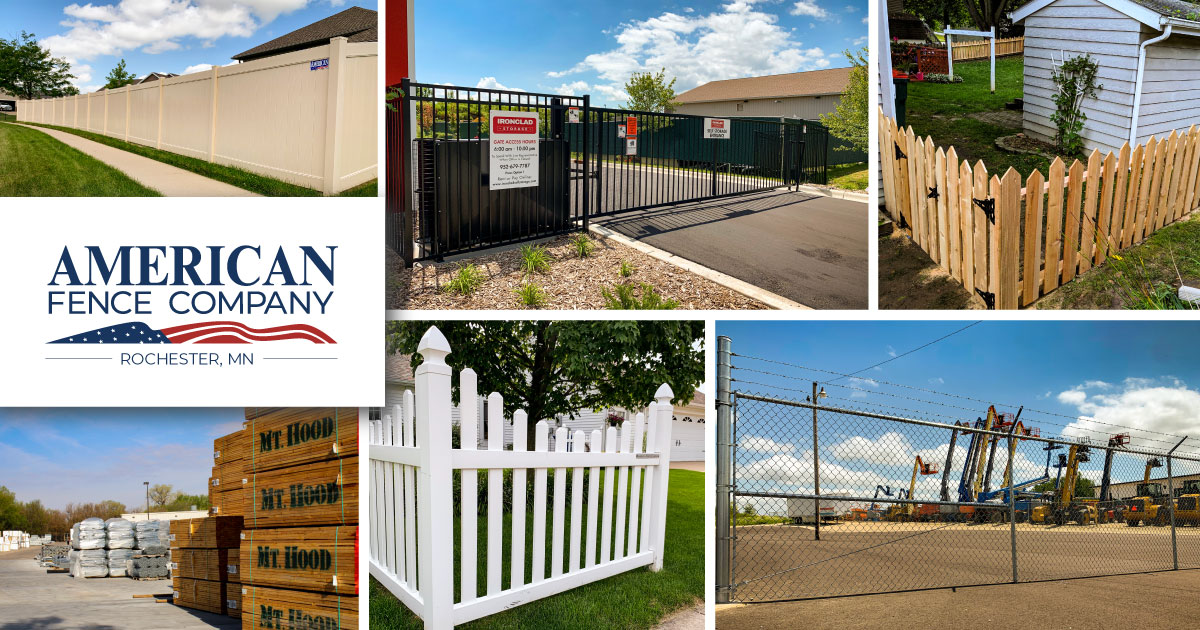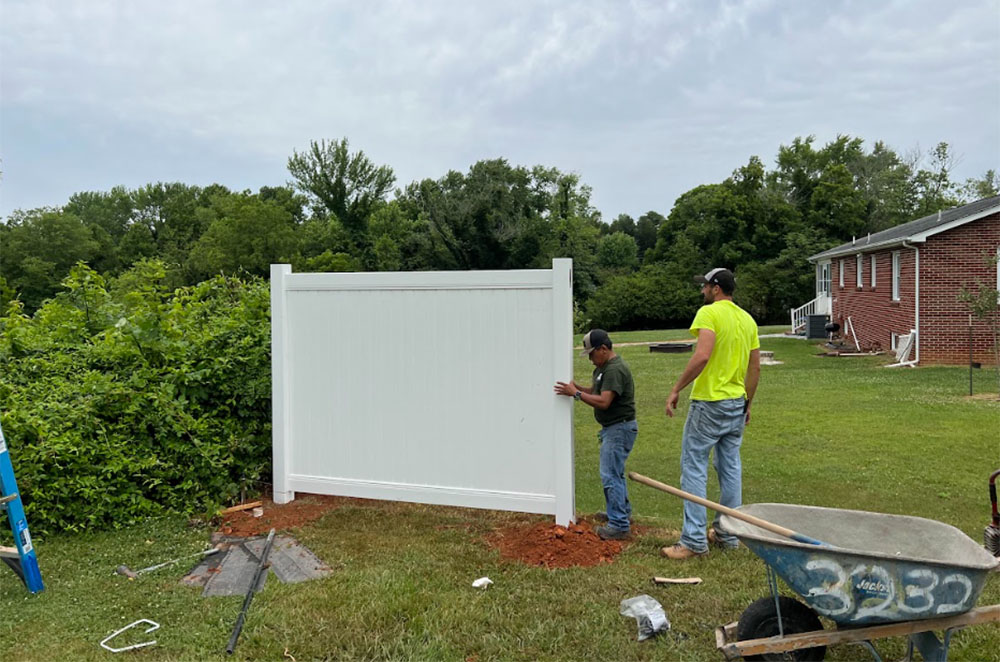Perks of Working with an Experienced Fence Contractor
Wiki Article
How to Recognize Usual Problems That Need Immediate Fence Repair
It is essential to find issues before they become bigger troubles when it comes to preserving your fence. Routinely looking for indications of decaying timber, leaning panels, or rust can conserve you money and time in the future. You could not realize how climate and insects can endanger your fencing's stability. Let's discover the common indications that show your fencing requires prompt focus, so you can keep your building secure and looking its finest.Indicators of Rotting Wood in Wooden Fences
Have you observed your wooden fencing looking a little bit worse for wear? It may be time to check for indications of deteriorating timber if so. Analyze the base of the messages and panels for soft areas. That's a clear indication of rot if you press on the timber and it really feels squishy or collapses. Next, seek staining or dark places on the timber-- these frequently signal wetness damage. Take note of any peeling off paint or surface, as this can expose the wood to additional degeneration. In addition, a poignant, stuffy smell can show fungal growth. Do not neglect to evaluate links and joints; if they're loosened or crumbling, the timber below is most likely endangered. By catching these indicators early, you can avoid more comprehensive damage and maintain your fencing standing strong. Regular maintenance is vital to extending the life of your wood fencing.Leaning or Tilting Fencing Panels
It's critical to comprehend what caused it if you have actually noticed your fencing panels turning or leaning. This concern may suggest underlying architectural damage that needs your interest. Let's explore the usual reasons and the repair alternatives readily available to obtain your fence back fit.
Reasons of Leaning Panels
When you observe your fence panels tilting or leaning, it's commonly an indication of underlying problems that require resolving. One typical reason is insufficient water drainage; extreme water can deteriorate the dirt around the fence blog posts, deteriorating their support. One more perpetrator can be strong winds or tornados that press against the panels, specifically if they're not correctly secured. Furthermore, the all-natural settling of soil gradually can trigger articles to change, resulting in a tilt. Insects, like termites, can endanger the integrity of wooden panels, triggering them to lean. Poor setup techniques may result in panels not being firmly established, leaving them susceptible to leaning under pressure. Address these problems without delay to maintain your fencing's integrity.
Indications of Structural Damage
Noticing leaning or turning fence panels can be alarming, as these concerns usually indicate architectural damages that requires immediate interest. When your fencing begins to lean, it may signify that the posts are moving or that the soil around them has actually eroded. Pay close attention to gaps in between panels or blog posts, as these can also suggest instability. deck builder. Additionally, check for splits or splintering in the timber, which can deteriorate the general structure. If you see corrosion or deterioration on steel parts, it could jeopardize the stability of the fence. Keep in mind, ignoring these signs can cause much more severe damages down the line, so it's vital to analyze the scenario immediately and take action prior to it aggravatesRepair Work Options Available

Corrosion and Rust in Metal Fences
If you have a metal fencing, you could notice rust and rust creeping in with time, particularly if it's exposed to dampness. These problems not just affect the look of your fencing however can also jeopardize its architectural stability. To recognize corrosion, try to find reddish-brown areas or spots, which show the steel is oxidizing. Rust can spread out swiftly if left neglected, leading and deteriorating the fencing to expensive repairs.To take on rust and deterioration, you should clean up the influenced areas with a cord brush and apply a rust-inhibiting primer. When the guide dries out, consider repainting the fencing with a weather-resistant paint to protect it additionally. Normal maintenance, such as evaluating for indicators of corrosion and repairing paint as required, will assist prolong your fencing's life-span. Dealing with these problems quickly assures your steel fencing stays strong and aesthetically appealing for several years ahead.Cracks and Divides in Plastic Fencing

Causes of Vinyl Damages
Plastic fence is prominent for its resilience, yet it can still experience from fractures and splits as a result of different elements. One major cause is extreme temperature fluctuations. It can deteriorate the material over time when vinyl broadens in the heat and contracts in the chilly. Additionally, exposure to rough sunlight can cause UV degradation, making the vinyl breakable. Physical impacts, like unintentional crashes or heavy branches, can also create cracks. Poor installation or making use of low-quality materials can worsen these problems. Age plays a role; older plastic fence is much more at risk to damage. Normal inspections can aid you determine these factors before they result in considerable problems. Take positive measures to ensure your fencing continues to be solid and intact.Repairing Cracks Efficiently
Although fractures and divides in your vinyl fence can be concerning, addressing them without delay can avoid more damages and preserve the fence's appearance. Analyze the size of the fracture. For little cracks, a vinyl repair service package typically consists of adhesive that can bond the edges, supplying a smooth solution. Clean the area thoroughly prior to using the sticky, guaranteeing it adheres effectively. For bigger splits, you may require to make use of a plastic spot. Cut the spot to dimension, use adhesive around the edges, and press it strongly onto the split. Allow it to treat according to the supplier's instructions. Routine upkeep and quick repair work can extend your fencing's life-span, maintaining it looking fantastic for several years to come.Loose or Missing Fence Posts
Loosened or absent fencing blog posts can threaten the security of your entire fence structure. It's necessary to address the problem immediately if you discover any type of posts leaning or tottering. Examine for any type of signs of motion, as this can result in more damages gradually. You can easily assess the issue by giving each post a gentle shake-- if check here it really feels unsteady, it's time to take action.For missing messages, you'll need to change them asap to keep your fencing's integrity. When you mount brand-new posts, ensure they're securely anchored in the ground with concrete or gravel for included security. If a blog post hangs, tighten it by including extra assistance or driving it deeper into the ground.Ignoring these problems can lead to larger issues, like gaps in your fencing or perhaps full collapse. So, maintain an eye on your messages and remain positive regarding repairs!Damage From Weather and Natural Components
Climate and natural components can unleash havoc on your fence, leading to numerous kinds of damage that require timely attention. Heavy rainfall can cause timber to rot, making it weak and unpredictable. Snow build-up could flex or break panels, while strong winds can uproot fence blog posts or trigger sections to lean.If you observe cracks or splintering in wooden fences, it signifies drying due to intense sunlight direct exposure. Steel fences can rust if safety coverings wear off, especially in humid or coastal areas.Inspect your fencing on a regular basis after tornados or severe climate to capture any kind of damages early. Addressing these issues quickly can conserve you from costly fixings down the line. Don't wait until a little problem transforms right into a significant one; stay proactive and maintain your fencing in top form to maintain both capability and visual allure.Pest Infestation and Termite Damage
It's vital to act rapidly to avoid more damage when you discover indications of bug invasion or termite damage. Look for mud tubes along your fence or hollow-sounding timber, as these suggest termites are at job. You could additionally see little holes or frass, which is termite droppings looking like sawdust. If you find any of these indications, it's time to assess the damage.Don' t wait till it's far too late; bugs can compromise your fencing's integrity. Evaluate the surrounding location for beetles or ants, as they might be contributing to the issue. If you suspect a problem, consider getting in touch with a bug control specialist to treat the issue.repairing and validate or replacing afflicted sections of your fence without delay not only restores its stamina but also prevents pests from spreading out further. Remain alert to maintain your residential or commercial property safe and secure and pest-free.Regularly Asked Questions
Just how Often Should I Check My Fencing for Damages?
You need to check your fencing a minimum of twice a year, preferably during springtime and autumn. Regular checks assist you spot damage early, conserving you time and cash on repair work while preserving your building's look and safety.Can I Repair a Fence Myself or Employ a Specialist?
If you have the right tools and abilities, you can definitely fix a fencing on your own. Nevertheless, working with an expert assurances quality work and saves you time, particularly for complicated repairs or substantial damages.What Devices Are Required for Fundamental Fencing Repair Services?
For fundamental fence repairs, you'll need devices like a hammer, screwdriver, pliers, a saw, a level, and measuring tape. deck builder. Relying on the repair service, you could additionally require nails, screws, or substitute boardsExactly How Much Does Fence Fixing Usually Cost?
Fence fixing expenses vary widely, yet you can expect to pay between $200 and $1,500 relying on materials, labor, and extent of damages. It's clever to obtain several quotes for the very best offer.
When Is the most effective Season for Fencing Fixes?
The very best time for fencing repairs is throughout light weather condition, usually in springtime or very early fall. You'll avoid severe temperature levels, making it less complicated to function and making sure the materials set properly for lasting sturdiness (deck builder). Noticing leaning or turning fence panels can be worrying, as these issues usually indicate architectural damages that needs instant interest. Loosened or missing fence posts can undermine the security of your whole fencing structure. Snow buildup might bend or break panels, while strong winds can uproot fencing messages or trigger sections to lean.If you see fractures or splintering in wooden fencings, it's an indicator of drying out due to extreme sun direct exposure. Metal fencings can rust if safety layers wear off, specifically in moist or coastal areas.Inspect your fence regularly after tornados or extreme climate to capture any kind of damage early. Fencing repair work prices vary extensively, however you can expect to pay in between $200 and $1,500 depending on materials, labor, and level of damageReport this wiki page